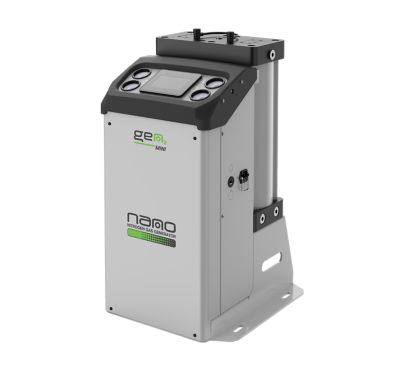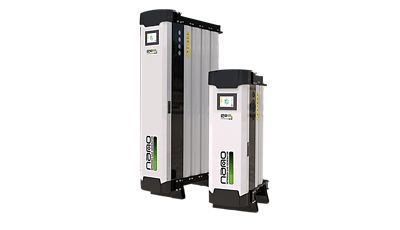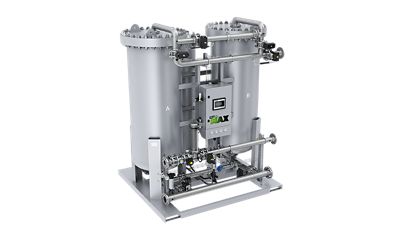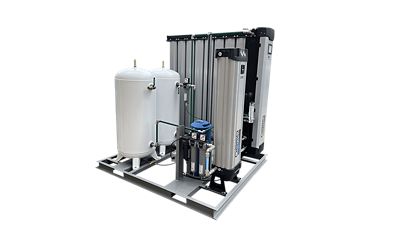Sustainability is no longer a trend in the food and beverage industry, it’s a necessity. With rising consumer expectations, stricter environmental regulations, and increasing pressure to reduce carbon footprints, manufacturers are looking for ways to make their operations more eco-friendly. However, finding sustainable solutions without compromising product quality or efficiency can be challenging.
One overlooked opportunity lies in nitrogen gas. Used extensively in food packaging, processing, and storage, nitrogen plays a critical role in preserving freshness and preventing spoilage. But traditional nitrogen supply methods come with environmental drawbacks. The good news? On-site nitrogen generation offers a greener, more cost-effective alternative that enhances sustainability while delivering operational benefits.
Let’s explore how switching to on-site nitrogen generation can help food and beverage manufacturers achieve greener operations.
The Environmental Impact of Traditional Nitrogen Supply
Most food and beverage manufacturers rely on bulk nitrogen supply from gas companies. While convenient, this method comes with a significant environmental cost.
Bulk Nitrogen Production and Transportation: Carbon Footprint Concerns
Nitrogen gas is commonly produced through cryogenic distillation, an energy-intensive process that separates nitrogen from the air at extremely low temperatures. This process consumes vast amounts of electricity, contributing to greenhouse gas emissions.
Once produced, nitrogen is transported to manufacturers in liquid or gaseous form via tankers or high-pressure cylinders. The logistics of transporting bulk nitrogen require fuel, increasing carbon emissions. Manufacturers relying on third-party nitrogen supply also face the risk of delivery delays, which can disrupt production schedules.
Energy-Intensive Processes of Cryogenic Nitrogen Production
The infrastructure required to produce and store bulk nitrogen demands constant refrigeration to maintain low temperatures. This ongoing energy consumption results in higher operational costs and a larger environmental footprint.
Waste and Inefficiencies in Nitrogen Cylinder Usage
Nitrogen cylinders require frequent replacement and management, leading to material waste and excess energy usage. Leaks, evaporation losses, and over-pressurization can also lead to inefficiencies, wasting valuable resources while increasing costs.
On-Site Nitrogen Generation: A Sustainable Alternative
Manufacturers can significantly reduce their environmental impact by switching to on-site nitrogen generation. This method allows facilities to produce their own nitrogen gas using compressed air, eliminating the need for bulk deliveries and external suppliers.
How Nitrogen Generators Work
On-site nitrogen generators use Pressure Swing Adsorption (PSA) or membrane technology to extract nitrogen directly from the surrounding air. These systems operate on demand, producing high-purity nitrogen without the waste and inefficiencies of traditional supply methods.
Reduction in Transportation Emissions
By generating nitrogen on-site, manufacturers eliminate the need for tanker deliveries, significantly cutting transportation-related carbon emissions. This shift not only reduces environmental impact but also enhances operational reliability by removing supply chain dependencies.
Lower Energy Consumption
Compared to cryogenic production, nitrogen generators require significantly less energy. By leveraging existing compressed air infrastructure, manufacturers can optimize their nitrogen supply while lowering overall energy consumption.
Reducing Food Waste with Nitrogen
Food waste is a major sustainability challenge, and nitrogen plays a vital role in reducing spoilage.
Extending Shelf Life with Modified Atmosphere Packaging (MAP)
MAP replaces oxygen in food packaging with nitrogen, preventing oxidation and microbial growth. This technique is widely used for snacks, dairy products, meat, coffee, and fresh produce, ensuring products stay fresh for longer.
Preventing Oxidation and Spoilage
Oxygen exposure accelerates spoilage in oils, nuts, and other perishable goods. Nitrogen creates an inert environment that preserves food quality, reducing the amount of wasted inventory.
Minimizing Waste in Supply Chains
Longer shelf life leads to fewer expired products, decreasing the volume of food waste at both retail and consumer levels. This not only benefits the environment but also improves profitability for manufacturers.
Enhancing Energy Efficiency in Food Processing
Nitrogen contributes to energy efficiency across various food processing applications.
Optimizing Product Handling and Storage
In food production facilities, nitrogen helps maintain stable storage conditions, preventing moisture buildup and contamination. This reduces reliance on energy-intensive refrigeration methods.
Real-World Examples of Efficiency Gains
Many leading food and beverage companies have successfully integrated nitrogen generators to lower energy use while maintaining high product quality. These businesses report significant cost savings and improved operational efficiency, demonstrating the value of on-site nitrogen solutions.
Cost Savings and Long-Term Sustainability
Sustainable practices don’t just benefit the planet, they also contribute to financial savings.
Lowering Operational Costs
With an on-site nitrogen generator, manufacturers eliminate expenses associated with bulk gas delivery, rental fees, and supplier contracts. This results in immediate and long-term cost reductions.
Reducing External Supply Dependence
Supply chain disruptions can lead to unexpected costs and production delays. On-site nitrogen generation provides a reliable, self-sufficient solution that minimizes these risks.
Return on Investment (ROI)
While the initial investment in a nitrogen generator may seem significant, the long-term savings on bulk nitrogen purchases, transportation, and waste reduction often lead to rapid ROI. Many manufacturers see full payback within just a few years.
Compliance with Green Regulations and Sustainability Goals
Environmental regulations are becoming stricter, pushing manufacturers to adopt sustainable practices.
Meeting Industry Standards
On-site nitrogen generation aligns with sustainability certifications such as ISO 14001 (Environmental Management) and other food safety regulations. Using nitrogen for food preservation also supports compliance with FDA and EU food safety guidelines.
Supporting Corporate Sustainability Initiatives
Many food and beverage brands have set ambitious carbon reduction targets. Switching to on-site nitrogen generation is a tangible step toward achieving these goals while maintaining high operational efficiency.
Contributing to a Greener Future
By adopting sustainable nitrogen solutions, manufacturers demonstrate their commitment to reducing environmental impact and supporting a circular economy.
Sustainability in the food and beverage industry isn’t just about reducing waste, it’s about making smarter choices that benefit both the environment and business operations. On-site nitrogen generation is one of the most effective ways to achieve greener manufacturing, offering reduced emissions, energy efficiency, and cost savings.
At nano-purification solutions, we specialize in advanced nitrogen generation technology that empowers food and beverage manufacturers to take control of their nitrogen supply sustainably.
Are you ready to reduce your carbon footprint and improve efficiency? Contact us today to learn how our nitrogen solutions can help your business go green while maintaining top-tier product quality.






